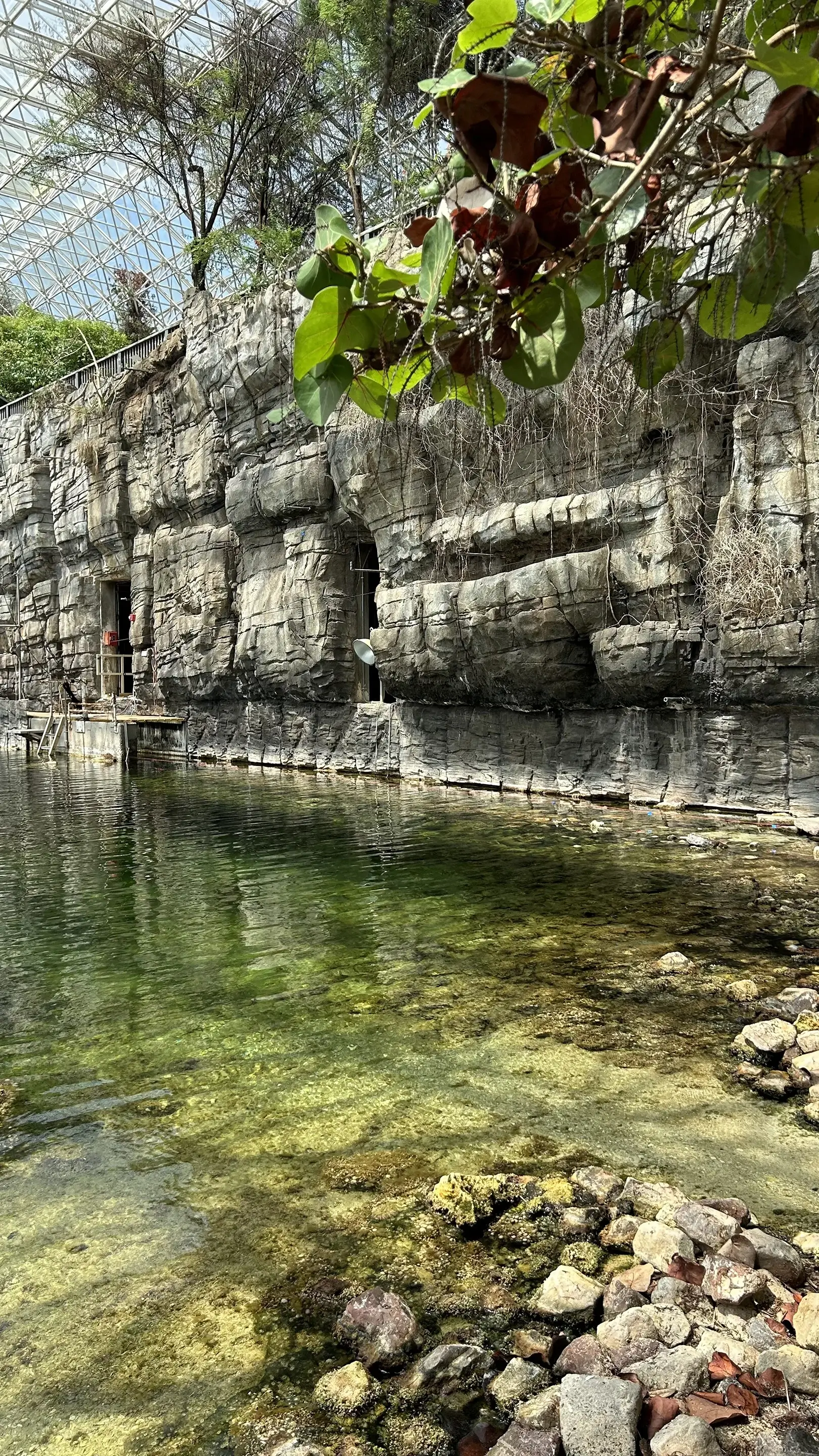
American Earth system science research facility, a precursor to gaining knowledge about the use of closed biospheres in space colonization. A research facility to demonstrate the viability of closed ecological systems to support and maintain human life in outer space as a substitute for Earth's biosphere.
It is the largest closed ecological system ever created, housing seven biomes: rainforest, ocean with a coral reef, mangrove wetlands, savannah grassland, fog desert, agricultural system and a human habitat with living spaces, laboratories, and workshops.
Biosphere 2, The University of Arizona
The world's most unique facilities dedicated to the research and understanding of global scientific issues. The Biosphere 2 facility serves as a laboratory for controlled scientific studies, an arena for scientific discovery and discussion, and a far-reaching provider of public education. Its mission is to advance our understanding of natural and human-made ecosystems through integrated research that drives the discovery and development of interventions that increase the resilience and sustainability of Earth systems and human quality of life.
The University of Arizona Biosphere 2 consists of a unique large-scale experimental apparatus, which houses model ecosystems.
- Mature rain forest
- Million-gallon research ocean
- Mangrove forest
- Tropical savanna grassland
- Coastal fog desert
- Subtropical thornscrub
August 4-11, 2024 - Tucson, Arizona
7 Days at Biosphere 2
For 7 days, Biosphere 2 was home for Class I students. It was a rare opportunity for students to engage in an immersive, hands-on learning about ecosystems, climate science, and sustainability. Students also engaged in team-building exercises to foster Unity and Collaboration


Personal Welcome
Class 1 students received a Personal Welcome and a Private Tour of its unique biomes (rainforest, ocean, desert, savanna, mangrove)
Dr. Joaquin Ruiz – Director, Biosphere 2
John Adams – Deputy Director, COO
Student Engagement & Activities
Science Briefing: Learned about the history and significance of Biosphere 2
Rainforest Ecology: Explored rainforest biome, its biodiversity, water cycles, and plant adaptations
Ocean Biome: Explored water chemistry, coral reef ecosystems and ocean acidification.
Climate Change: Explored the impact of rising temperatures and greenhouse gases
Sustainable Agriculture: Learned about Biosphere 2's farming techniques and food production models
Water Management: Explored Biosphere 2’s water capture, filtration, and recycling technologies




Casitas (small Villas)
Students and supervisers were housed seperatly (male & female) in Santa Fe style casitas. Each casita has a living area, kitchen, dining room and 3-5 bedrooms with independent showers and amenities, offering magnificent views of the Santa Catalina Mountains.




American Earth system science research facility, a precursor to gaining knowledge about the use of closed biospheres in space colonization. A research facility to demonstrate the viability of closed ecological systems to support and maintain human life in outer space as a substitute for Earth's biosphere.
It is the largest closed ecological system ever created, housing seven biomes:
- Mature rain forest
- Million-gallon research ocean
- Mangrove forest
- Tropical savanna grassland
- Coastal fog desert
- Subtropical thornscrub
August 4-11, 2024 - Tucson, Arizona
7 Days at Biosphere 2
For 7 days, Biosphere 2 was home for Class I students. It was a rare opportunity for students to engage in an immersive, hands-on learning about ecosystems, climate science, and sustainability. Students also engaged in team-building exercises to foster Unity and Collaboration

Personal Welcome
Class 1 students received a Personal Welcome and a Private Tour of its unique biomes (rainforest, ocean, desert, savanna, mangrove)
Dr. Joaquin Ruiz – Director
John Adams – Deputy Director, COO

Emirati YouthCapability Development:
Science Briefing: Learned about the history and significance of Biosphere 2
Rainforest Ecology: Explored rainforest biome, its biodiversity, water cycles, and plant adaptations
Ocean Biome: Explored water chemistry, coral reef ecosystems and ocean acidification.
Climate Change: Explored the impact of rising temperatures and greenhouse gases
Sustainable Agriculture: Learned about Biosphere 2's farming techniques and food production models
Water Management: Explored Biosphere 2’s water capture, filtration, and recycling technologies



Casitas (Small Villas)
Students and supervisers were housed seperatly (male & female) in Santa Fe style casitas. Each casita has a living area, kitchen, dining room and 3-5 bedrooms with independent showers and amenities, offering magnificent views of the Santa Catalina Mountains.




















































